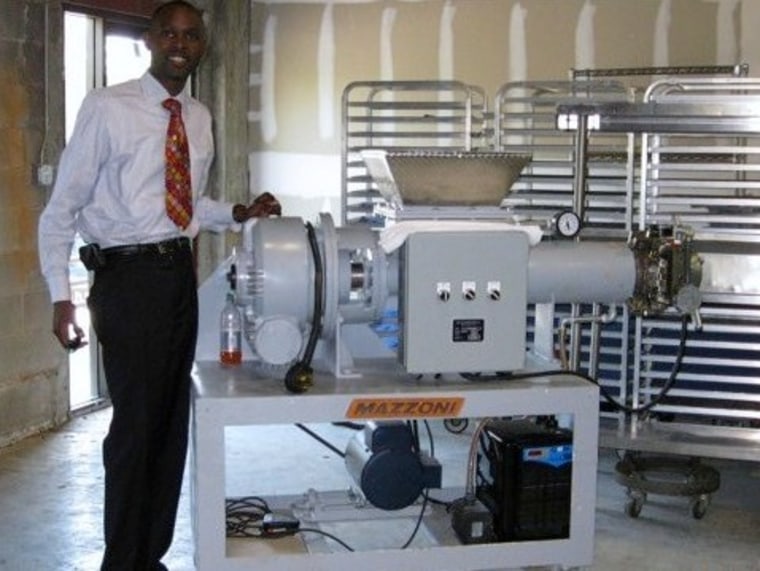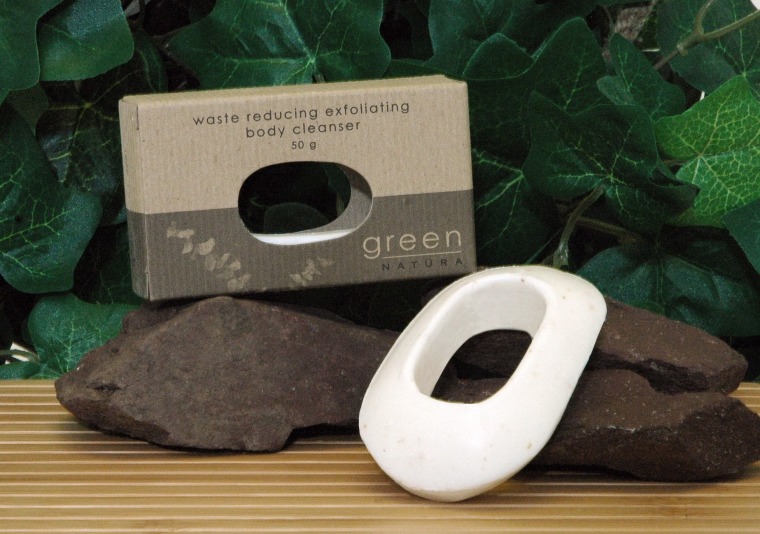You check in at the luxury hotel. You let yourself in the room. You realize something is missing.
Bathrobe? Check. Minibar? Check. High thread count bed sheets? Check. Those amenities are all there.
You walk to the bathroom, you pull back the shower curtain, and what the ...?
Some upscale hotels are doing away with tiny shampoo bottles and miniature bars of bath soap and installing push-button dispensers instead.
Standard in many budget hotel chains across the U.S. and Europe, amenities dispensers in luxe hotels strike some frequent travelers as tacky and unsanitary. “Seems cheap to me,” says software trainer Melissa Odom, who spends about 200 nights a year in hotels. “I’d think, ‘Ick, whose hands have been on this?’ ”
Other travelers notice, but don’t seem to mind. “I don’t particularly like them,” says travel planner Sheri Doyle, “but I appreciate the environmental reasons for doing it.”
Dispensing with the landfill
Pat Maher, the green consultant for the American Hotel and Lodging Association, predicts amenities dispensers will be the norm within five years. “Right now, half a million of those little shampoo bottles end up in landfills every day. Hotels that say they’re eco-friendly establishments and doing all those things they do with the greening of their hotels ... will start getting complaints if people stay at their hotels and they don’t have soap dispensers.”
Maher says properties currently testing or installing bathroom amenities dispensers include the Kimpton, Ritz Carlton and Choice Hotels as well as Starwood’s extended-stay Element Hotels.
But the historic Davenport Hotel in Spokane, Wash. — the first hotel to have air conditioning and a central vacuum system — has had amenities dispensers in all guest bathrooms since the hotel’s $38 million makeover in 2002. “The hotel owners were a little ahead of the curve on that,” says the Davenport’s Matt Jensen. “It’s very efficient, it makes sense financially and it fits in with the hotel’s historically green approach. We fill the dispensers with very high quality bath products, and the only people who seem disappointed are the ones who like taking home those little bottles of shampoo.”
S.O.S. — Save Our Soap
Of course plenty of hotels still stock guest bathrooms with a full array of miniature products. But look closely and you may notice those products tend to be shrinking. “Only about 10 percent of a bar of hotel soap gets used,” says Maher. “So some hotels are using smaller bars or using bars with curves carved into them so that the bars looks the same size, but have a third less soap.”
Other hotels aren’t trying to hide the fact that their soap has something missing. Among the hotel guestroom amenities offered by RoomService Amenities is a line of environmentally friendly products called Green from Natüra, which includes a bar of soap with a large hole in the middle. RSA’s Marshall Summer says the soap is designed “to eliminate the unused center of traditional soap bars” and is stocked by between 50 and 100 hotels nationwide, including Xantera Parks and Resorts, which operates hotels in Zion, Yellowstone, Death Valley and other national and state parks.
The nation’s hotels, however, still throw out about 800 million bars of slightly used soap each year. Some road warriors collect unopened soaps from their hotel rooms and donate them to shelters or groups in need. But several nonprofit organizations are gathering used soap, shampoo and other toiletries and recycling them to homeless shelters and communities where hygiene products are in short supply.
Close to 200 hotels, stretching from Florida to Hawaii, pay a tax-deductible recycling fee to Orlando-based Clean the World, which in 2009 collected and redistributed more than 230 tons of partially used soap and other toiletries. The nonprofit has a recycling plant where it re-batches about 10 percent of the donated soap it gathers by cooking it down and re-forming it into new bars. Ninety percent of the slightly used bars get sanitized and repackaged.

In Atlanta, former refugee Derreck Kayongo of Uganda and his wife Sarah operate the Global Soap Project, which is getting shipments of used soap from about 200 hotels across the nation. The group recently bought its own soapmaking machine and has 15 tons of used hotel soap in a warehouse waiting to be processed.
“Our plan is to sanitize and melt the soap, and turn it into new six-ounce bars,” says Kayongo. “Then we’ll ship the soap to Africa and work with an existing NGO [non-governmental organization] to distribute the soap at the Kakuma refugee camp in Kenya, which has been kind in hosting brothers and sisters who are escaping wars in other countries.”
What’s next?
Trend-wise, green consultantMaher says after all the tiny bottles and bars get replaced by dispensers, look for hotels to begin the wholesale installation of digital thermostats that can sense if a person is in the room and adjusts the temperature accordingly.
All well and good, says The Davenport’s Jensen, “But first it would be nice to come up with something that solves the problem of what to do with all the half-used rolls of toilet paper hotels end up with.”
Harriet Baskas is a frequent contributor to msnbc.com, authors the and is a columnist for USATODAY.com. You can follow her on .
